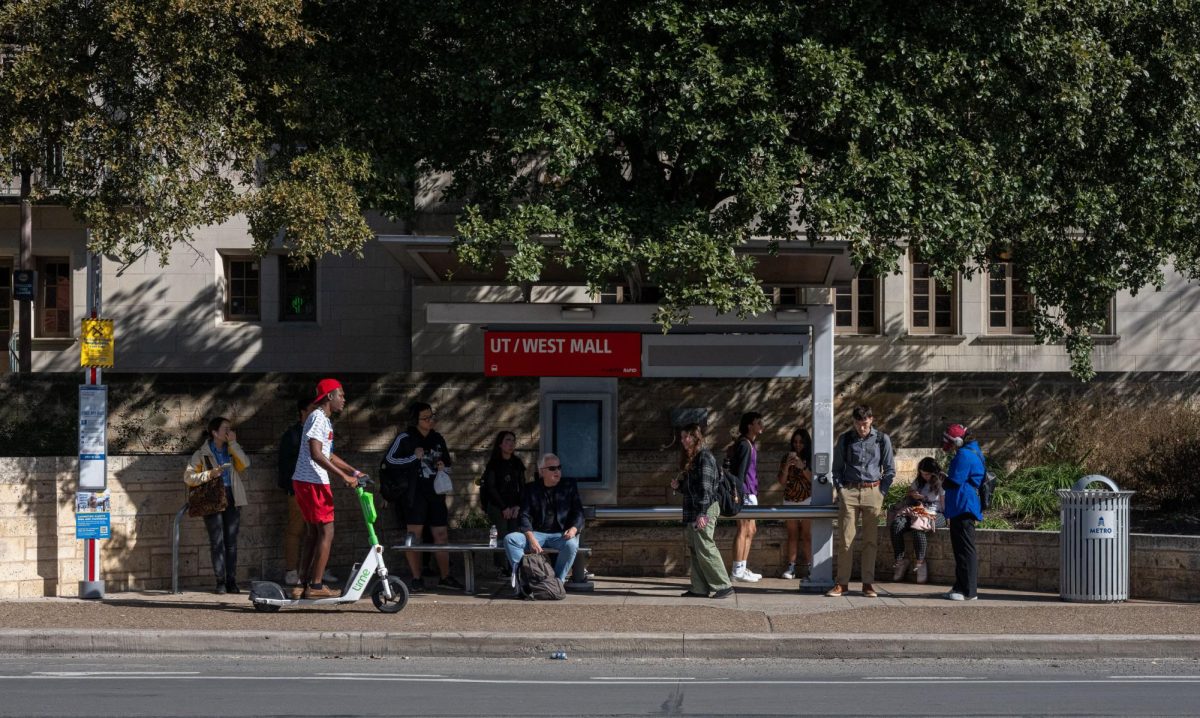CapMetro announced plans to station unarmed security guards at high-traffic stops during a January meeting.
“We have made a decision based on feedback that we have gotten from the public … that we’d be better served having a greater presence at our transit centers,” Gardner Tabon, chief safety officer for CapMetro, said at the Operations, Planning and Safety Committee meeting. “Our customers will have an even more comfortable environment … having security’s eyes on the activities that are happening at our transit centers.”
The security guards are the newest phase in the public safety initiative CapMetro approved in 2021. The plan includes public safety ambassadors and intervention specialists in addition to the transit police, said Darryl Jamail, senior director of public safety and emergency management for CapMetro.
Since 1988, CapMetro has filled the transit police role with off-duty Austin Police Department officers who respond to escalated incidents. However, they are unable to enforce CapMetro-specific rules — like wearing shoes on the bus — that aren’t actual laws, Jamail said.
Tabon said they plan to launch the new transit police force with their own officers due to public safety concerns. In the beginning, guards will only be stationed at four high-traffic and incident stops: North Lamar, South Congress, Republic Square and Tech Ridge.
“We want to start at least with a handful and see if we need to expand,” Tabon said.
The transit police force will launch in 2025 with 12 officers, according to the meeting. Before officers can begin, CapMetro must seek certification from the Texas Commission on Law Enforcement, said Eric Robins, CapMetro’s chief administrator for transit police.
UT students can use CapMetro, which is free for students with their valid student ID, to get around the city. CapMetro does not currently have plans to add security guards to stops near campus.
Philosophy and economics freshman Madison Rojas, who rides the bus frequently because she doesn’t have a car, said security guards could potentially make riders feel safer. However, she said she isn’t personally concerned about safety on the buses.
“If people are going around town for large distances and they have to be out either at night or really early in the morning, that could definitely make people feel safer,” Rojas said.
CapMetro will review the program after four to six months and evaluate areas for improvement, Tabon said.




















